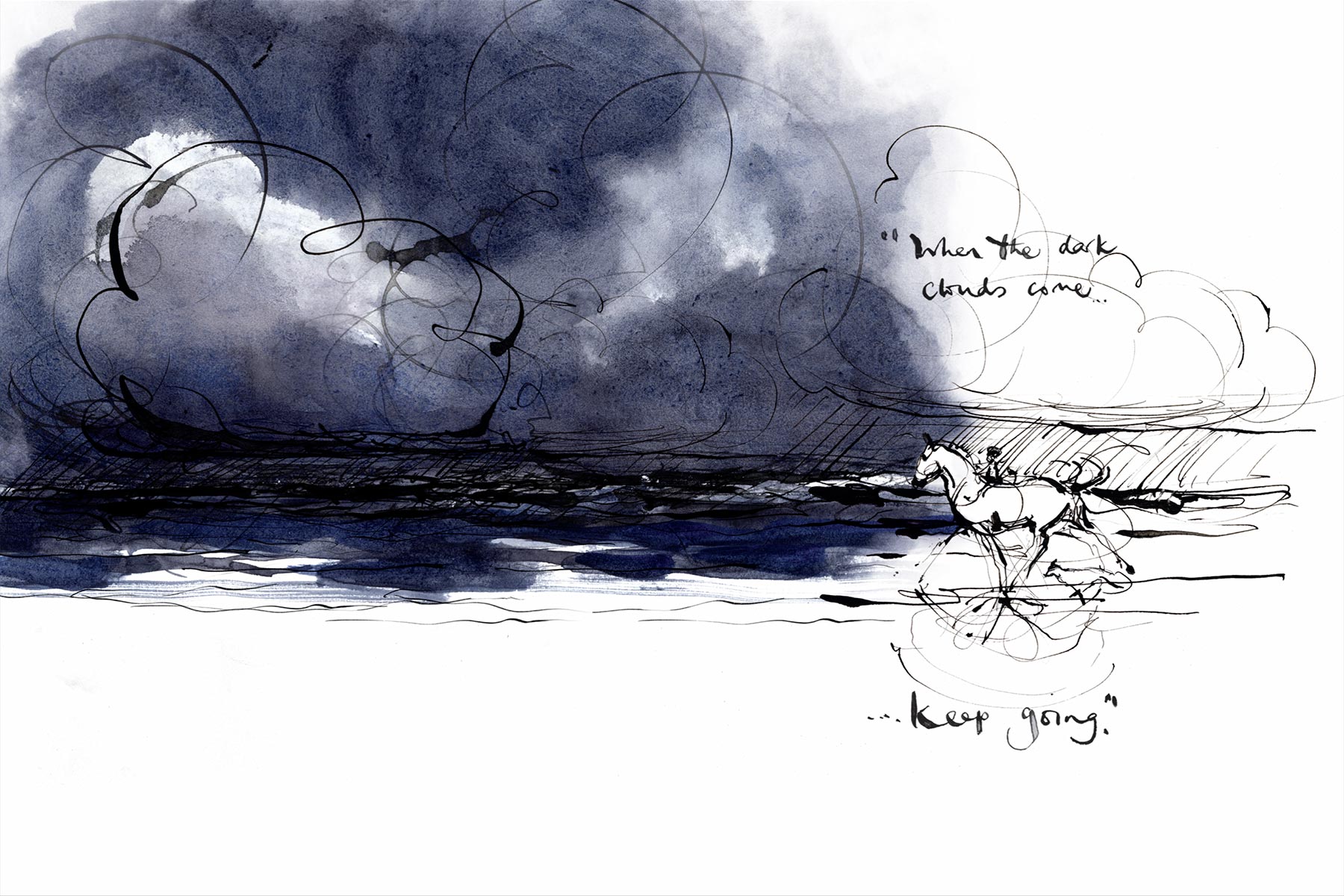The world is loud.
Our media is loud. Our entertainment is loud. Our environment is loud. Our politics measure on a scale of one-to-Trump with rageclicks in between.
Think, then, of an escape that’s quiet like falling snow.
My daughter introduced me to a book like this. She’s two. Her daycare gave it to us when her sister was hospitalized. It’s a fairly big book with somewhat abstract line drawing and aphoristic writing. We put it on a shelf thinking she might be ready for it a few years down the road. But she found it and has me read it to her most days of the week. Here’s a typical page.
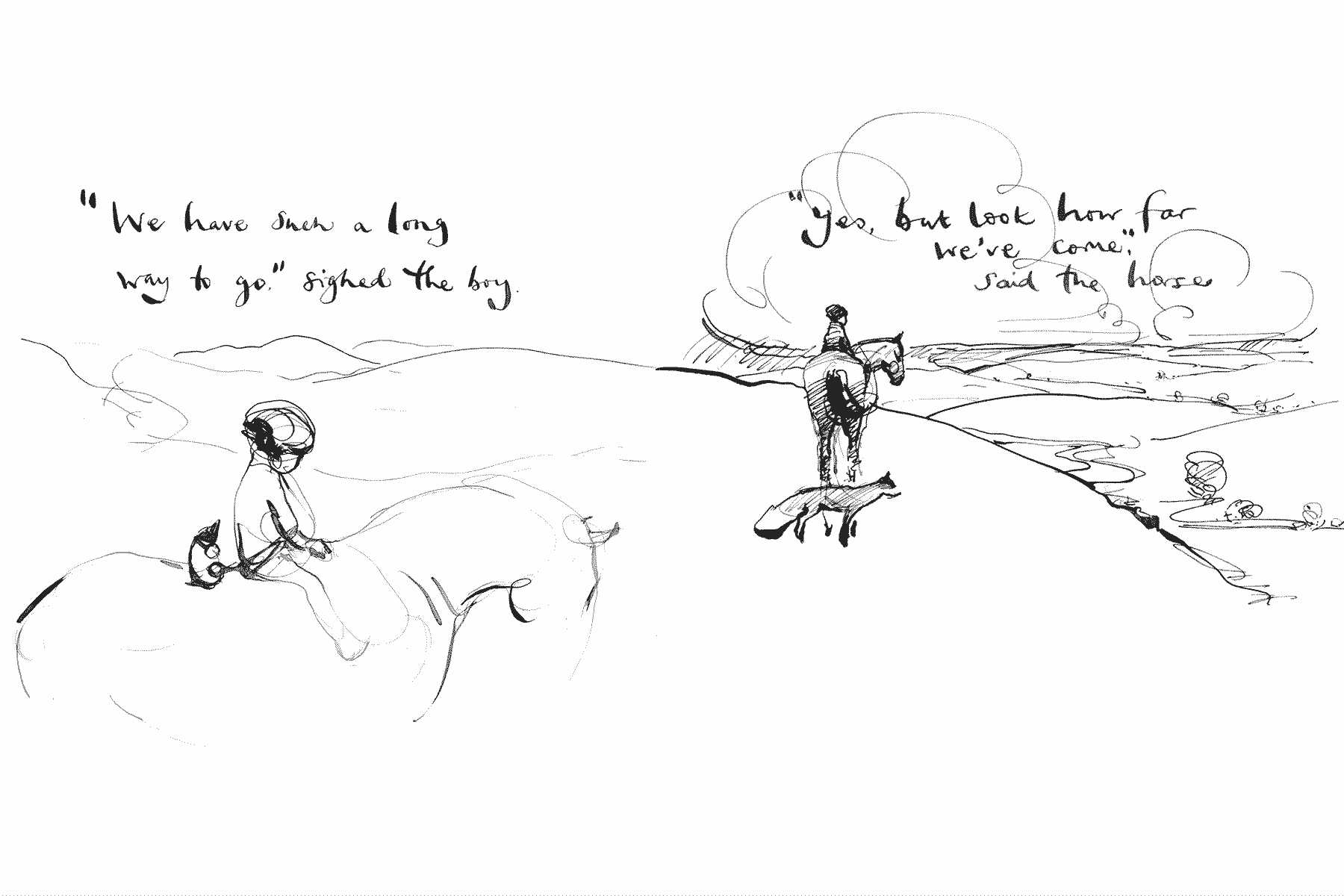
It’s a sweet book. If it existed a few years ago, my cynicism would have discarded it. Now that I’m old(er) with two children, and the older curls up in my lap when I read to her, it hits me in the feels.
Here’s the beginning of a theme that runs for a few pages.
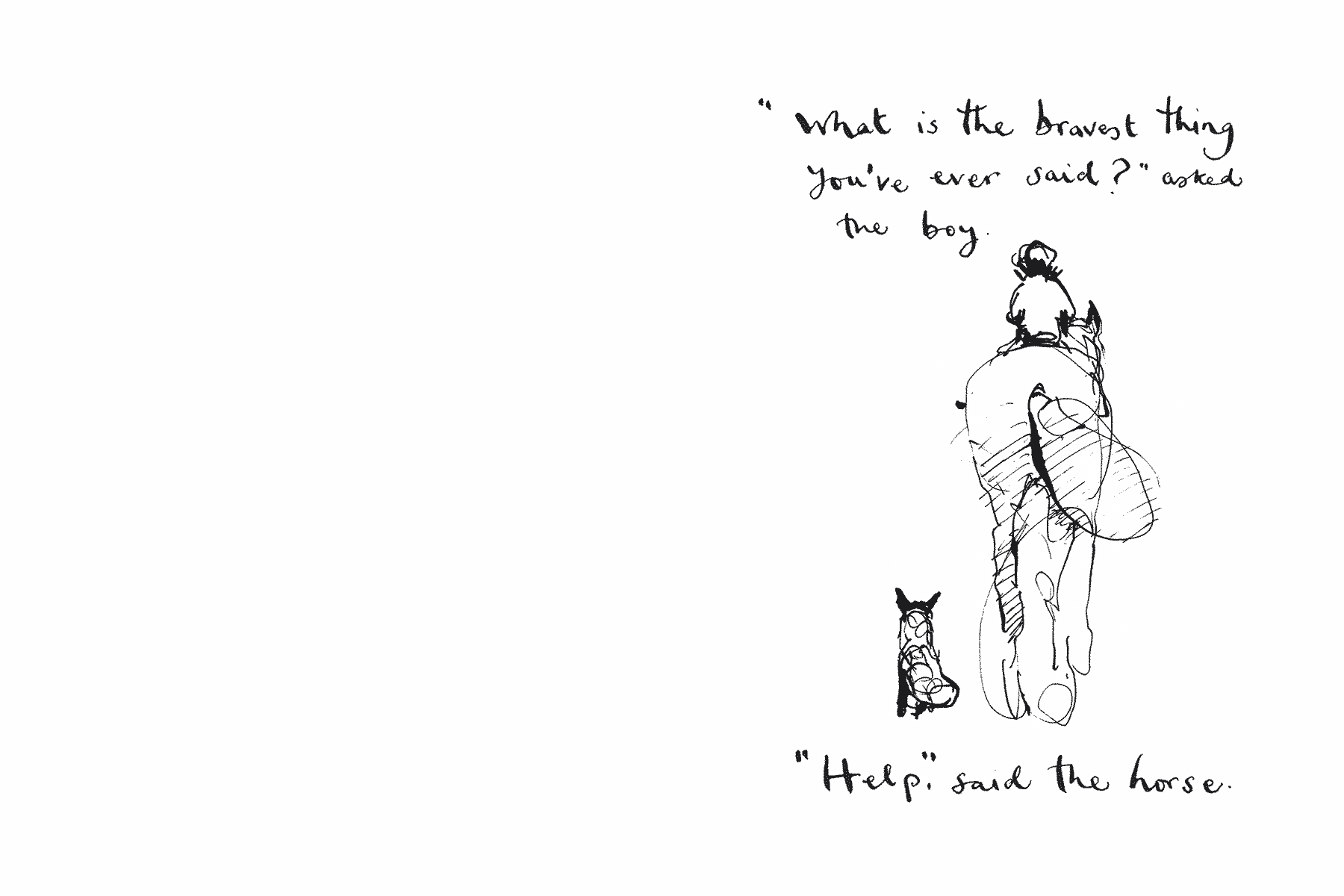
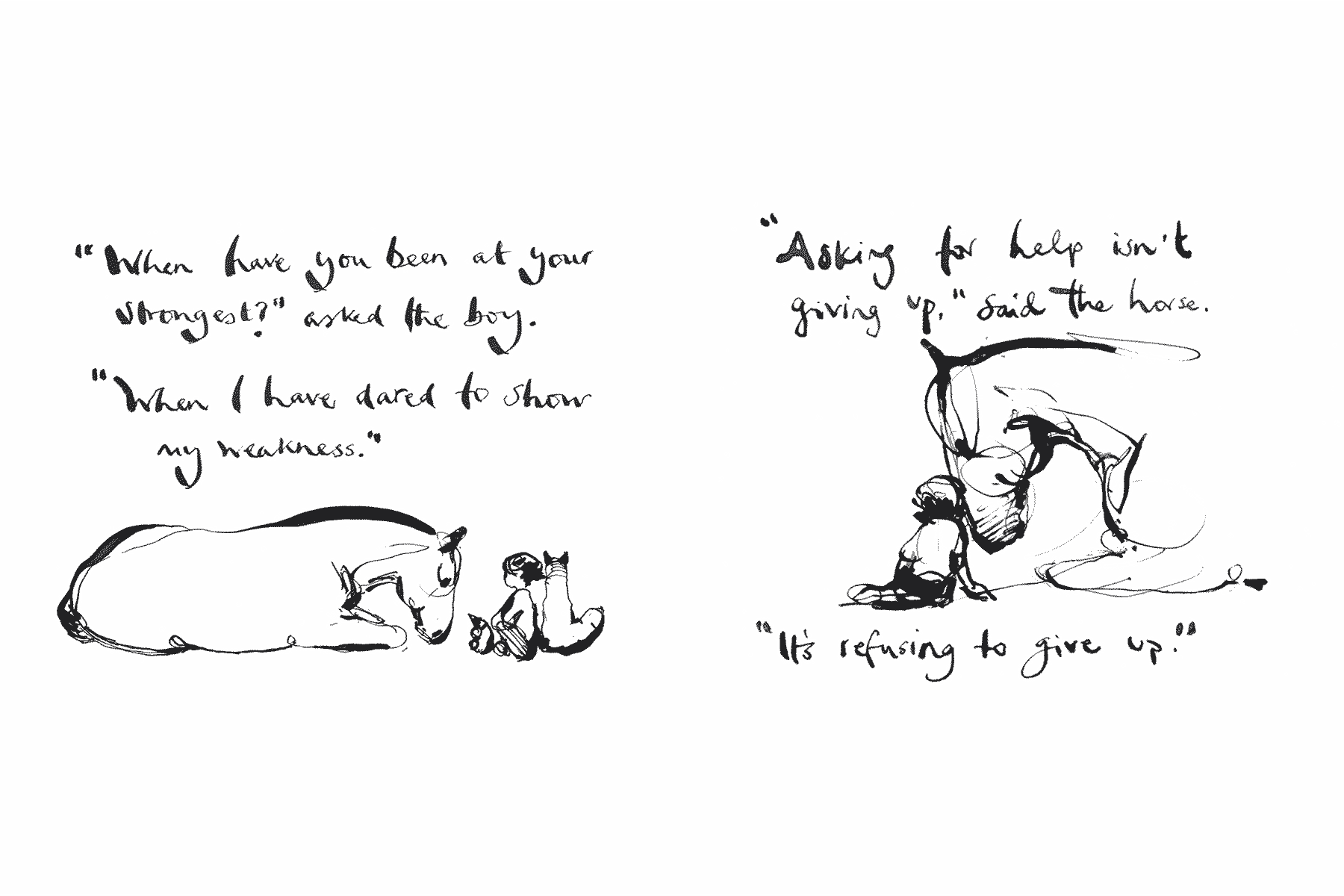
Charlie Mackesy’s The Boy, the Mole, the Fox and the Horse is an exceptionally gentle book for an exceptionally loud age. Its quiet writing follows four slightly bemused characters as they explore love, fear, acceptance and belonging.
It’s also amusing in its hushed asides.
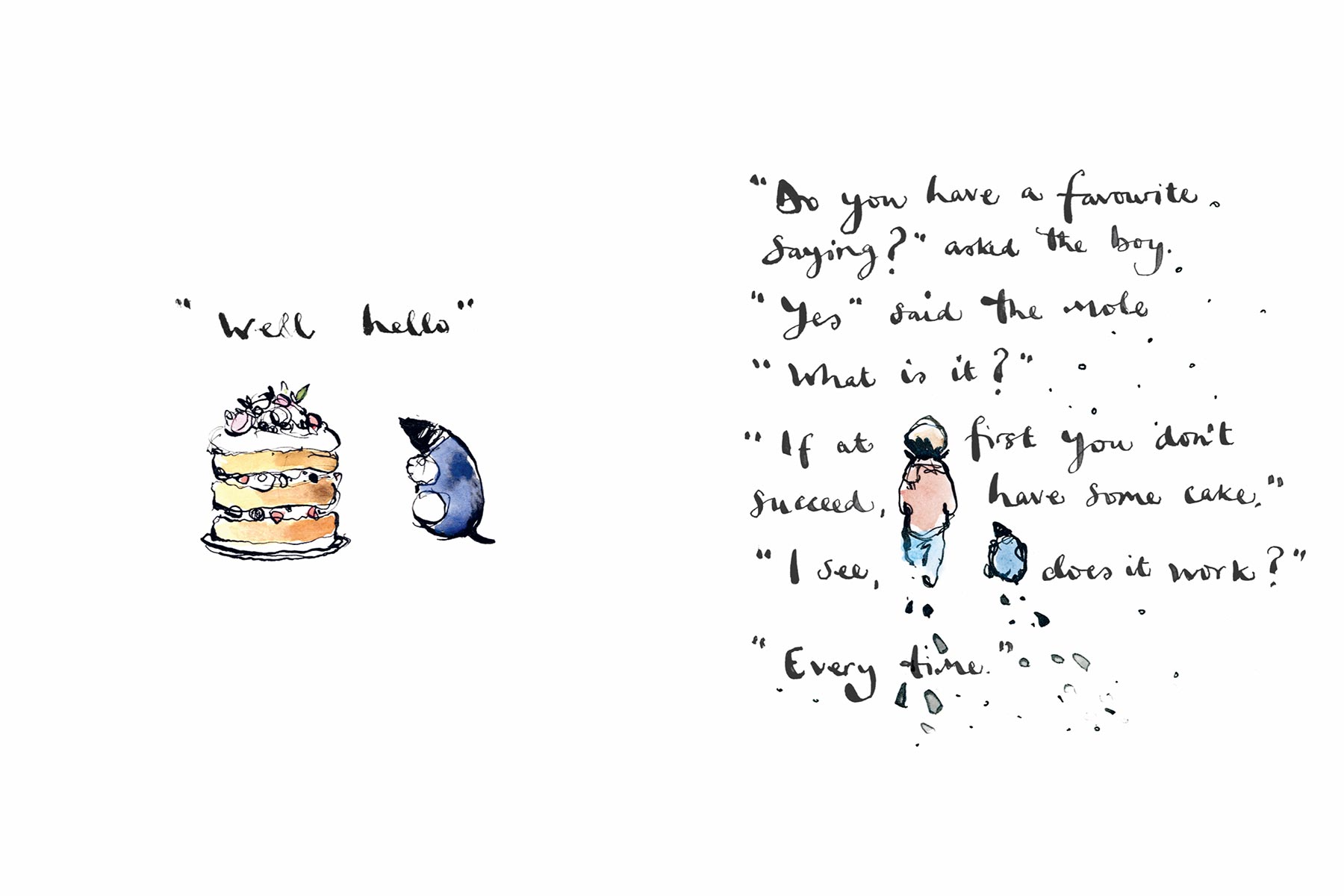
There’s a generosity here that I haven’t come across in a long time. If you find life chaotic, consider giving it a read.
Consider too, reading it with someone, awkward as that may be. A two-year-old is good company. So too a twenty-two or eight-two-year-old.
In a world that’s angry and shouty – in a world where there is so much to be angry and shouty about – this book provides a few moments of quiet reflection that lets us breathe again.
That’s the quiet this book speaks.
An Awkward Transition
I write this as a Covid outbreak makes its way through the Trump White House, as the country still doesn’t have a handle on the coronavirus, as millions are laid off from jobs that aren’t coming back, as an election looms a few weeks off, as protests continue around the country, as 2020 continues to rear its ugly head.
I write from a little corner in my unfinished basement. I set this up as my office seven months ago when the coronavirus shut the world down. Far as I can tell, it will probably still be my office seven months from now. The best I can say about it is that I can hear my daughters through the ceiling; and if I want to take a break during the day, I can step outside and pick weeds which – if you haven’t given it a try – is actually kind of calming.
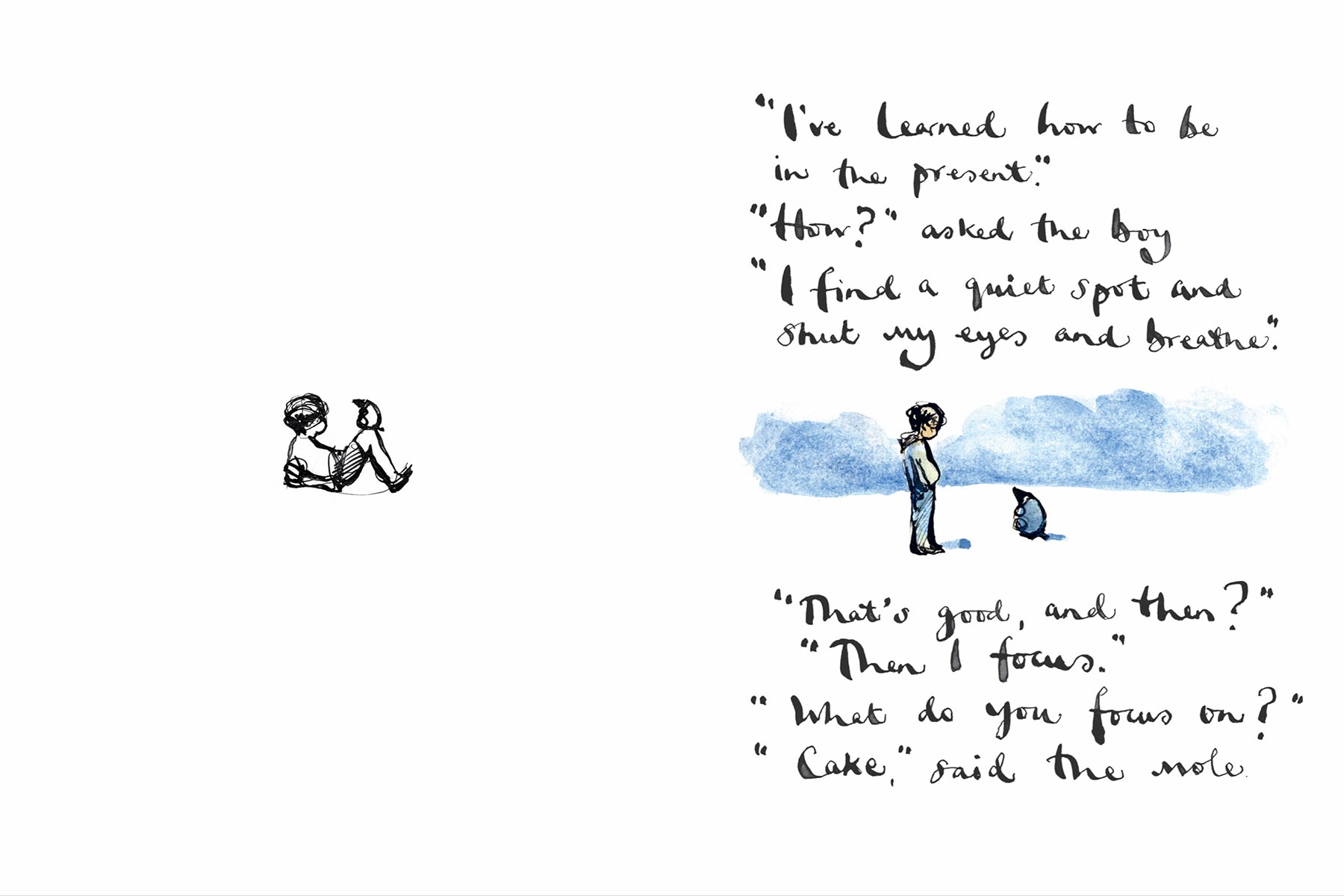
My family lives in Rhode Island’s rural west. We moved here last winter from New York City, settling in about a week before sheltering in place began.
We don’t necessarily experience the national drama in our neck of the woods. Instead, we read and watch from afar as the country stumbles along in what, hopefully, is the final throes of whatever it is you want to call these last number of years. Let our national body give a final spasm to shake its fever and then let’s get better, together. That’s hoping for the best, at least.
That’s not to say what happens elsewhere doesn’t happen here. After closing for the spring and summer, the historic inn down the street finally shut down. So too the local fabric store. I bump into my neighbors while doing yard work. They too are furloughed, or somewhat working from home, or wondering what comes next, and tracking whether their kids will be in school, out of school, or some combination of the two.
Some yards have Trump signs. Some go for Biden. A conspicuous majority have neither but instead post placards supporting favored candidates in our local races. They’re tired, I think, and don’t want to be hassled for signaling their intent on a national scale. It’s all just… too much. At least that’s what I think I think.
A small ice cream shop on the corner of a modest Main Street a few towns over shut down for the summer. They tired of the righteous refusing to abide by social distancing and mask wearing when placing orders for their cones. The final straw came when two grown men harassed teenage servers for asking them to follow store rules. Freedom, as we’ve seen expressed throughout the country, brought to us by aggrieved Kens and performative Karens.
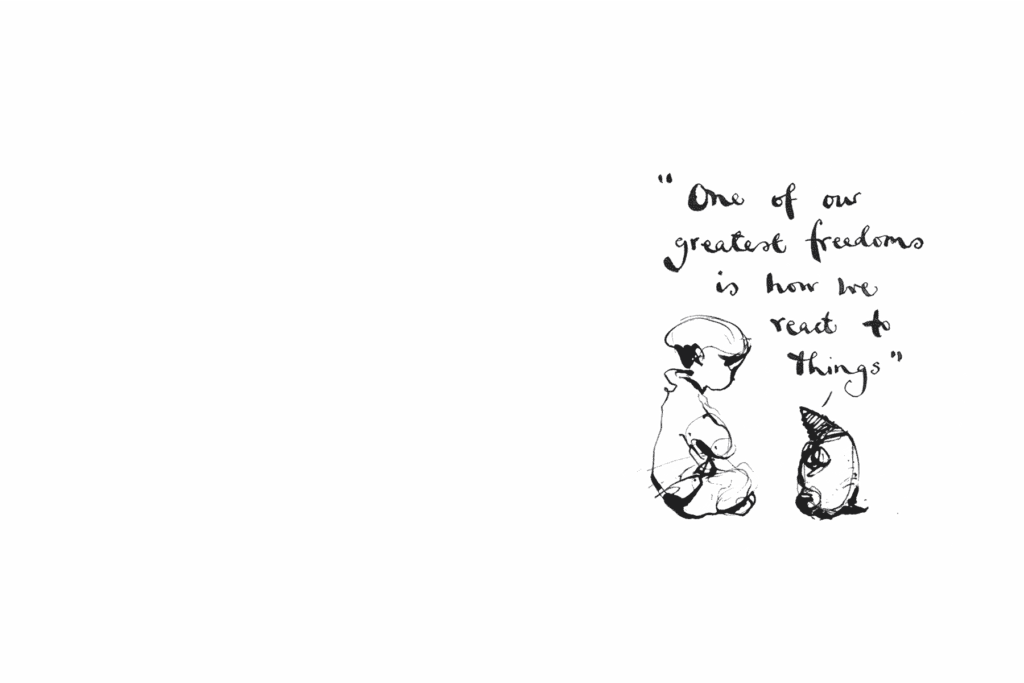
I wonder whether the social and economic impact of these small town examples resonate further than the vast scale of shutdowns and closures we’re seeing in places like New York City. Instinctually, I hypothesize yes.
When there are only a few things of this and that, and you take some away, you’re removing a large percentage of what didn’t exist in large numbers in the first place. Out here in the country, there aren’t many alternatives once something is gone. Then again, city business are shuttering at scale and the city is a much less forgiving place.
I also wonder what seven and ten and fifteen-year-olds think of all this. Kids old enough to have various senses of what’s going on be it coronavirus or the protests and counter protests surrounding social justice, police violence and the Black Lives Matter movement. I wonder what they think of Trump and his voting conspiracies that darken the upcoming election, threaten our sense of democracy and give pause to any hope that we might just yet make it out of all this.
Do they even think of the upcoming election? What do they think of the actors playing out the drama? Do they think about what America is, or was, before all this. “All this,” after all, is their normal. Depending on their age, there’s little – if any – point of reference to before times. Everything that is, just is. That’s the way it is, and was, far as they mostly know. When, I wonder, will those of us older think the same.
And, finally, I think of how an election fatalism spawned by the president’s ongoing assault on mail-in voting now spreads through the country. We collectively know a shit show awaits us. We bide our time. We listen to anger. We rageclick. We doomscroll. We rinse. We repeat.
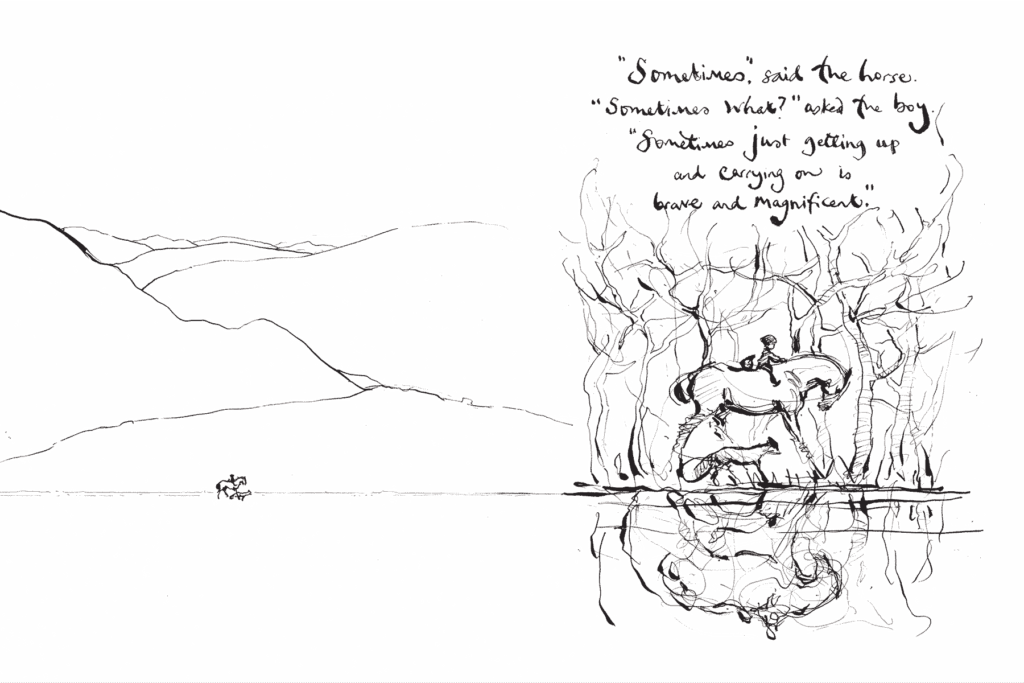
It reminds me a bit of the lead-up to the Iraq war under president Bush. Then too we had an administration warping reality, flooding the field with fictions and alternative facts that required those opposing them to prove impossible negatives. Prove there are no weapons of mass destruction. Prove that voter fraud won’t take place.
The only real difference is the speed of the media apparatus churning all this. Back then it was a credulous media backstopped by Fox News, talk radio, influential blogs and email threads. It all felt fairly instant but you could still sneak a few hours of sobriety into your headspace.
Now, social media kindles animosities by the minute, conspirators thrill when the Fox constant launders their latest misinformation, and networks of second and third tier actors eagerly amplify it all for a man hermetically sealed off from humanity but all too ready to infuse his invective back into the system. It’s a feedback loop, perfected.
The rest of “normal” media is more skeptical of what’s happening now than what happened then. Unfortunately, they aren’t built for times like these. Their tools and operational standards prevent them from calling crackpot ideas and actual crackpots by name. They’re either overwhelmed by the volume or frame what’s happening as differences of opinion.
While there is no evidence of widespread voter fraud, they report, some believe differently. And on they go, amplifying nonsense under the distant gaze of an objectified journalistic objectivity until the nonsense becomes a reality that the rest of us have to deal with.
Both sides of the story need be told, they tell us. Besides, he’s the president, they tell us.
Yes, but he’s a crackpot with years of receipts to demonstrate the point.
The mind races. We could go on. This is the bane of our current American age. The mind can always race because we can always go on.
Lucky are those living in saner worlds where media and politics isn’t so loud, where the stakes aren’t so high. Lucky are those living in stable, functioning countries. We once thought we were among you.
Which makes The Boy, the Mole, the Fox and the Horse just a little more important than it otherwise may be. It’s a book that gives us 30 minutes of sanity in an otherwise insane world. This quiet shouldn’t be taken for granted. It’s a generous gift for the anxious among us. And who among us isn’t anxious these days?
